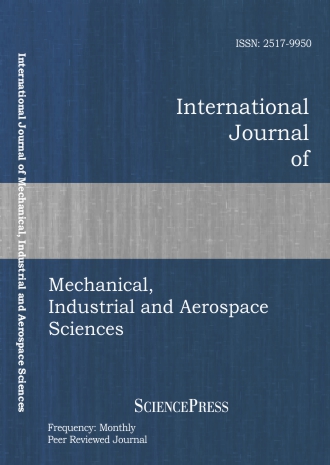
Scholarly
Volume:7, Issue: 1, 2013 Page No: 57 - 63
International Journal of Mechanical, Industrial and Aerospace Sciences
ISSN: 2517-9950
1240 Downloads
Hybrid of Hunting Search and Modified Simplex Methods for Grease Position Parameter Design Optimisation
This study proposes a multi-response surface optimization problem (MRSOP) for determining the proper choices of a process parameter design (PPD) decision problem in a noisy environment of a grease position process in an electronic industry. The proposed models attempts to maximize dual process responses on the mean of parts between failure on left and right processes. The conventional modified simplex method and its hybridization of the stochastic operator from the hunting search algorithm are applied to determine the proper levels of controllable design parameters affecting the quality performances. A numerical example demonstrates the feasibility of applying the proposed model to the PPD problem via two iterative methods. Its advantages are also discussed. Numerical results demonstrate that the hybridization is superior to the use of the conventional method. In this study, the mean of parts between failure on left and right lines improve by 39.51%, approximately. All experimental data presented in this research have been normalized to disguise actual performance measures as raw data are considered to be confidential.
Authors:
References:
[1] P. Kanchanasuttisang and P. Luangpaiboon, "Sequential Multiple